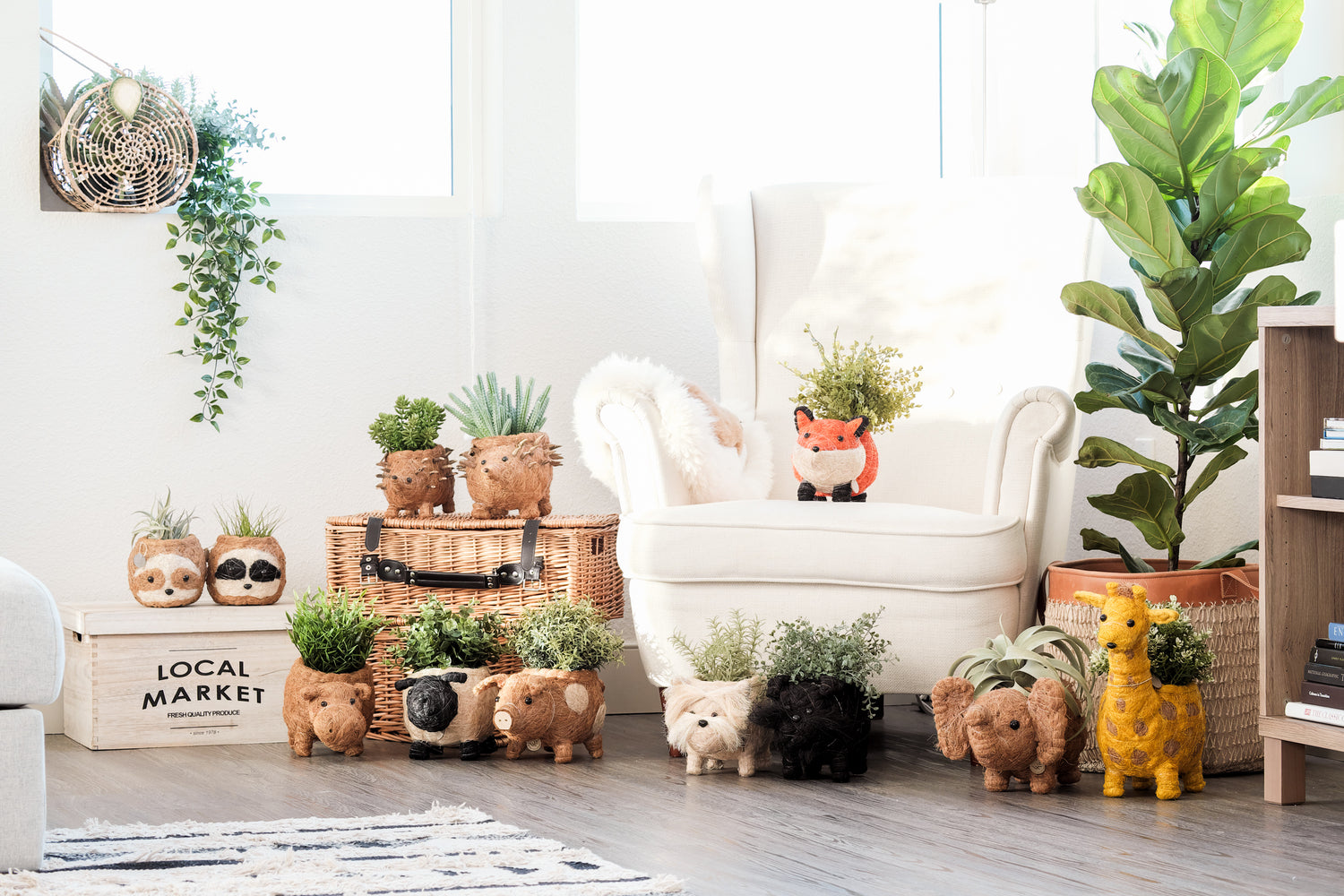Each sustainable piece the entrepreneur sells was handcrafted with tradition-honored techniques by locals in the Philippines.
by Nashia Baker | September 20, 2022
*Original article on marthastewart.com

Nathalie Lim has taken the title "world traveler" to new heights over the last 10 years. In the last decade, the founder of LIKH—a handcrafted, sustainable home goods brand—has lived on three continents and in four countries and eight cities. But after trekking around the world, she knew that planting roots, and designing a place to call home, was necessary. After giving her aesthetic some thought, she realized that it was guided by her personality, values, and the memories she shares with her husband.

Moving With a Mission
Throughout her life, Lim's parents, educators, and mentors have taught her the importance of serving those in need. "It's not about achieving a dream or ticking a box—I see this as my way of helping people from my country who don't have the same opportunities as I do," she says. "Throughout my life, I've been driven by a compassion for Filipinos who are incredibly talented, but live in a system that fails them, that doesn't give them a chance."
After working briefly in finance, Lim studied international development in graduate school and participated in a social impact fellowship program, which helped her meld her business background with her desire to give back.
Uplifting Local Communities
Lim planted the seeds for LIKHÂ in August 2018. "I was living in New York then and was looking for a mortar and pestle, but I couldn't find one that I thought was good value," she says. "One day, on a trip back to the Philippines, I was driving past some artisan sellers in the town square and there it was, the marble mortar and pestle I'd been searching for, and it was selling for next to nothing." Lim felt angry—this was yet another reminder of what society thought the local community deserved.
"I realized that living in the U.S., I was in a position to help—to give them access to a market that was willing to pay for what their craft is really worth, with a little design intervention and product development," says Lim. "At the same time, I'm Filipino and understood the local culture and how people do things—so everything just clicked together."
We strive to stay true to our artisans' craft and tradition, honoring centuries-old craftsmanship passed on through generations.
— NATHALIE LIM
Launching LIKHÂ
Lim's first step towards launching LIKHÂ started with studying her market, particularly its best price points. "I started small and worked my way up, investing personal funds on a wide array of products to test, then eventually whittled them down into the few product categories that showed the most promise," says Lim. "We did everything back then—pop-ups, trade shows, online—getting as much feedback as we could until we had a good understanding of what the market wanted."
She continued by growing LIKHÂ's revenue base and boosting her company's design, production, and marketing categories. "We're a lot more focused now, and while we still do pop-ups because there's really no better way to understand people's wants than face-to-face, we thrive mainly through our more scalable, less high-touch channels," says Lim. "We're currently self-funded (apart from some working capital debt), but we are at that stage where we're considering raising funds to fuel our growth."

Honoring Traditional Techniques
Every LIKHÂ piece is crafted by skilled artisans, and Lim says that she and her team build relationships with each of them over the course of years; their relationships are are built on communication, trust, and transparency. "It's a constant back-and-forth that builds up in a virtuous cycle—the more we work with our artisans, the more we understand and develop empathy towards each other, the more efficient communications become and the more trust is built between us," she says.
Design, tradition, and inclusion are at the core of LIKHÂ. Lim and her team partner with local fair trade non-profits, mix modern design and traditional techniques to produce each good, and use natural materials native to the Philippines, like coconut and shells. "At the same time, we strive to stay true to our artisans' craft and tradition, honoring centuries-old craftsmanship passed on through generations," she says. "Through all of this, we invite our artisans and communities along on the creative journey, fostering close collaboration and really turning this into a process of co-creation."

Fan Favorites

Principles to Follow
If you're building a business of your own, Lim says to get as much insight as you can, as early as possible, from other entrepreneurs. Also, know your mission. "Be clear about your values and what you stand for, and never waiver," she adds. "This will be your north star as you navigate through the many challenges of running a business." Lastly, find people that are in your corner. Even if you do most of the heavy lifting early on, the right team will lead towards the path to success.
Through every purchase, Lim hopes that her customers will prioritize social consciousness. "When you buy something, you're not just taking something home—you're supporting a cause, casting a vote on what we as a society value and stand for," she says. Ultimately, the entrepreneur wants to empower artisans to overcome poverty. In the next five years, she aims to scale LIKHA's impact, creating livelihoods for nearly 2,000 Filipino artisans and improving the lives of 10,000 more.



